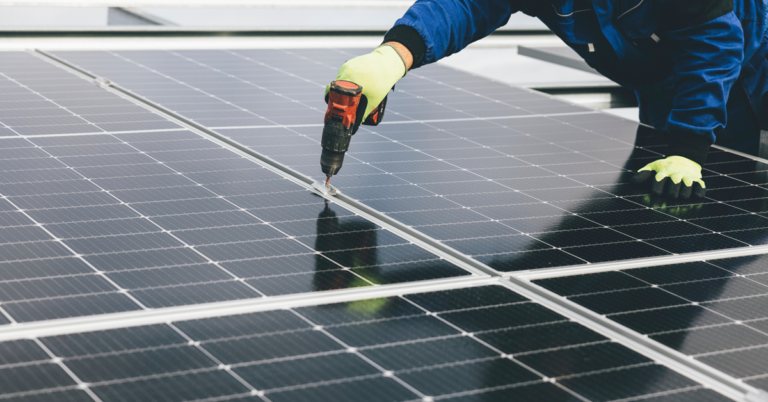While solar panels are often touted as a sustainable and cost-effective energy solution, it is important to consider the potential drawbacks before deciding if they are the right choice for your home. There are a few significant drawbacks to consider before emptying your wallet. Understanding these aspects will help you make an informed decision about whether solar panels are a feasible option for your specific circumstances as a homeowner.
High Upfront Cost
The initial investment required for purchasing and installing a solar panel system can be a deterrent for many homeowners. Solar panels, along with the necessary equipment such as inverters, batteries, and wiring, can add up to a substantial expense. This upfront cost may be difficult for some individuals to afford or justify, particularly if they have other pressing financial obligations or limited disposable income.
The return on investment is not immediate, and it may take several years or even a decade to recoup the initial investment through energy savings. This extended payback period can discourage homeowners who prefer more immediate returns on their investments. While the long-term financial benefits of reduced energy bills and potential government incentives can offset the upfront costs, the significant initial expenditure remains a legitimate concern for those considering solar panel installation.
Locational Limits
The location limitations of solar panels can make them a less favorable option for homeowners. One significant limitation is the prevalence of shading from trees and nearby buildings. If your property has an excessive amount of shading, it can significantly reduce the amount of sunlight reaching the solar panels, thus compromising their energy production. In densely populated areas or neighborhoods with mature trees, shading can be a common issue, and it may be challenging to find an unobstructed area for optimal solar panel placement.
Another factor to consider is the orientation of your roof. For solar panels to generate the maximum amount of energy, they should ideally face south and have a suitable tilt angle. However, not all roofs may have the ideal orientation or tilt, which can result in suboptimal energy production.
Costly Maintenance/Repairs
The maintenance and repair aspect of solar panels can present specific challenges that may make it a less favorable option for homeowners. For example, Florida’s warm and humid climate, coupled with its unique environmental factors, can increase the maintenance requirements and potential costs associated with solar panels. The state’s abundant sunshine is a boon for solar energy production, but it also means that panels are more susceptible to accumulating dirt, dust, and debris. Florida’s high pollen counts, dry and windy periods, and occasional sandstorms can contribute to the buildup of particles on the panel surface, diminishing their efficiency over time. Regular cleaning or professional maintenance may be necessary to ensure optimal performance.
Furthermore, Florida’s susceptibility to severe weather events, including tropical storms and hurricanes, poses a risk to solar panels. Strong winds, flying debris, and hail can cause physical damage to the panels or disrupt their electrical connections, necessitating repairs or replacements. Coastal areas, in particular, face additional challenges due to the corrosive effects of saltwater on the panels and supporting structures. Corrosion prevention and regular inspections become essential to mitigate potential issues.
Transferring Solar Loans
Before selling your home, you must consider all the tasks involved, which includes transferring your solar loan. This process adds complexity to the transaction, involving additional paperwork and coordination with the lender, potentially deterring buyers. Buyers must qualify for the loan assumption, which could pose challenges and limit the pool of potential buyers. Some buyers may be hesitant to take on the responsibility of an existing solar loan, which could potentially make the home less attractive or impact negotiations. Moreover, associated costs, such as fees for loan assumption or penalties for early loan payoff, can further impact the seller’s financial position. Paying off the solar loan before closing requires the seller to have the necessary funds available, potentially straining their financial resources or affecting their ability to meet other financial obligations related to the home sale.
In light of these considerations, sellers should carefully evaluate the implications of transferring solar loans or paying them off before closing. They should review the loan terms, consult with professionals such as real estate agents and financial advisors, and assess their specific goals and financial circumstances. By doing so, sellers can make an informed decision that aligns with their needs while minimizing potential complications and financial strain during the home sale process.
The Bottom Line
While solar panels offer several benefits, including renewable energy generation and potential cost savings, there are valid reasons why they may be considered a bad idea for certain homeowners. The high upfront costs of purchasing and installing solar panels can pose a significant financial burden, deterring those with limited funds or uncertain long-term plans. Additionally, locational limits such as shading, unfavorable roof orientations, and climate conditions can affect the panels’ efficiency and viability in certain areas, like Florida. Moreover, the ongoing maintenance costs, including regular cleaning, potential repairs, and the responsibility falling on the homeowner, further add to the overall investment. Considering these factors, it is essential for individuals to carefully evaluate their specific circumstances, financial capabilities, and location to determine if solar panels are a practical and beneficial choice for their homes.


